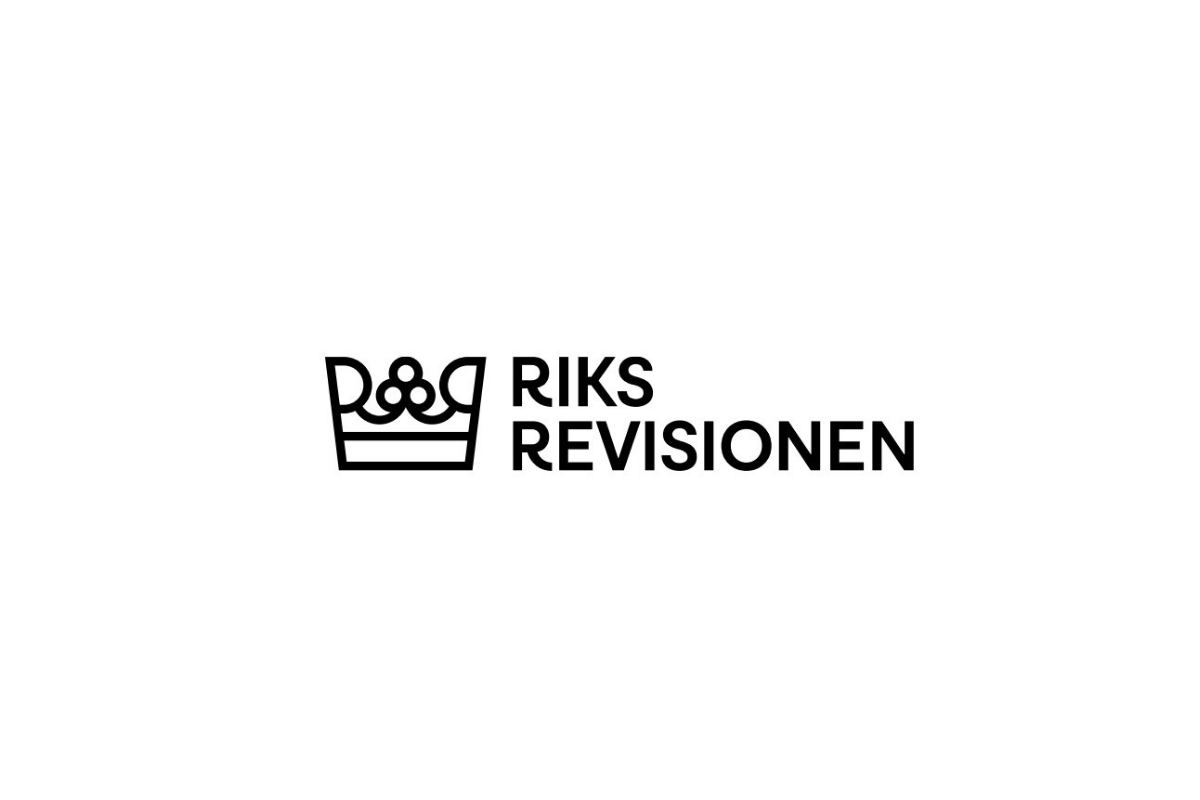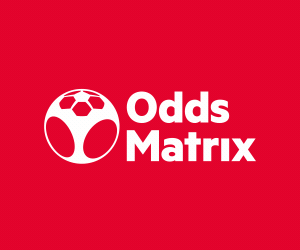Compliance Updates
Navigating New Frontiers: AI’s Role in Reinventing iGaming Compliance

By Paul Addicott-Evans, Managing Director for Products at ComplianceOne Group
In high-stakes world of iGaming, regulatory compliance is not just a box to be checked – it is the bedrock upon which the industry’s integrity and customer trust are built. As we navigate this complex landscape, the emergence of Artificial Intelligence (AI), especially through Large Language Models (LLMs) like ChatGPT, promises a revolution in how we approach regulatory processes. Yet, with great power comes great responsibility, and the integration of AI in compliance raises crucial questions about the verifiability and accuracy of its data inputs.
The Data Verification Dilemma
At the core of this AI-driven transformation in iGaming compliance is ChatGPT, a marvel of modern technology powered by a sophisticated Large Language Model. ChatGPT opened the world’s eyes to the possibilities of AI, whilst simultaneously creating a major question with wide-spread adoption: Can we trust it?
Despite its impressive capabilities, a fundamental challenge persists: verifying the accuracy and currency of the information it provides. In many walks of life, not least the ever-changing regulatory environment of iGaming, relying on AI tools without verifiable data sources could lead to non-compliance, legal challenges, and potentially financial penalties.
This dilemma is intensified by the dynamic nature of iGaming regulations, which can vary significantly across jurisdictions and are subject to frequent updates. Non-compliance can be extremely costly, so ensuring that AI tools are not only informed by but also aligned with the latest legal standards is paramount. This calls for a robust framework where AI tools are continuously fed with up-to-date and verified regulatory data, and their outputs are regularly audited for accuracy and compliance.
The science bit…
How do we approach this problem? The availability of large language models is now almost a commodity. The technology is available for everyone to use. However, when faced with such an important problem as reliability and verifiability, there is a need to weave supporting technologies into the AI-framework. This is where vector embeddings come into play, acting as a bridge between raw data and the AI’s ability to understand and verify it.
Imagine vector embeddings as a vast library, not of books, but of words, phrases, and concepts, each with its own unique location. This library is created by a neural network, a type of AI, which reads and understands vast amounts of text, then organizes this information into a map.
Each word or phrase is placed precisely, so that words with similar meanings are neighbours.
For iGaming compliance, this library becomes invaluable. When AI uses vector embeddings, it’s like consulting this map to understand not just words, but the context and meaning behind them. This is crucial for verifying vast, complex regulatory information.
In essence, vector embeddings allow AI to comprehend and verify information much like an expert human would, but with the speed and accuracy that only a machine can offer. This boosts the reliability of AI in iGaming compliance, ensuring that the operators get accurate and up-to-date information, crucial for staying within regulatory boundaries.
AI’s Edge in iGaming Compliance
The use of AI in iGaming compliance, when done correctly, can offers a suite of advantages:
- Enhanced Precision and Efficiency: AI’s ability to swiftly and accurately synthesize regulatory information ensures that operators are always in step with the latest compliance requirements. For instance, an AI tool could analyse recent amendments to anti-money laundering laws across different jurisdictions within minutes, a task that would take humans significantly longer.
- Customized Regulatory Insights: AI can offer bespoke guidance, adapting to the unique operational and geographical nuances of each iGaming operator. An example of this is how AI tools can provide tailored advice to operators based on specific games offered or markets targeted, considering the unique regulatory landscape of each area.
- Automated Compliance Oversight: Continuous AI surveillance of iGaming operations guarantees adherence to regulatory standards, proactively identifying and rectifying instances of non-compliance. This could include real-time monitoring of player interactions to ensure responsible gaming practices are maintained.
Looking Ahead
The journey of integrating AI into iGaming compliance is fraught with challenges, yet the potential rewards are substantial. By anchoring AI in the principles of data verifiability and source transparency, we can redefine how the iGaming industry navigates its regulatory maze – a shift not just in technology but in establishing a new era of trust and reliability.
_______________________________________________________________________________
Introducing IntelligentOne AI
At Complitech, we stand at the forefront of this exciting frontier with OneAI. Developed as part of the comprehensive Complitech database of global regulations, this groundbreaking AI product is poised to redefine iGaming compliance. OneAI distinguishes itself by providing current, accurate data, free from the common ‘hallucinations’ of LLMs, thereby offering responses to regulatory inquiries that are not just swift, but also dependable and verifiable.
Take the example of a Games studio assessing the impact of Germany’s regulations on slot games, particularly concerning the maximum bet limit and the mandatory delay between spins.
Using OneAI, the studio inputs a query about slot regulations in Germany. The AI tool quickly processes this request, providing a detailed analysis of the current German regulations on slot games. It highlights that the maximum bet per spin is capped at €1 and that there is a required minimum interval of 5 seconds between spins. This information is directly linked to the relevant sections of the German Interstate Treaty on Gambling, ensuring accuracy and verifiability.
This targeted insight allows the studio to make informed decisions about game design and offerings in the German market, ensuring compliance while optimizing their product for the new regulatory environment.
With OneAI, iGaming companies can access instant, reliable insights for complex technical compliance questions, streamlining decision-making processes. This innovative tool represents a significant leap in the application of AI in iGaming compliance, marrying the linguistic dexterity of LLMs with the robust, updated Complitech database. It heralds a new chapter in iGaming regulation, where technology not only expedites but also elevates the trustworthiness and accuracy of compliance processes. As AI continues to evolve, tools like OneAI are set to play a pivotal role in fostering a safer, more compliant, and trustworthy iGaming ecosystem.
Compliance Updates
Interpol Illegal Gambling Investigation Leads to 5100 Arrests

In a massive international operation targeting illegal football gambling and its associated criminal activity, authorities made over 5100 arrests and recovered more than USD 59 million in illicit proceeds.
The operation, code-named SOGA X and conducted between June and July 2024, was a collaborative effort involving INTERPOL and 28 countries and territories. It was designed to tackle illegal online football gambling during the UEFA 2024 European Football Championship, which was predicted to generate a surge in betting turnover, and lucrative profits for criminal organisations.
The illegal gambling market is worth a staggering USD 1.7 trillion globally, according to research by the Asian Racing Federation, and is closely tied to other criminal enterprises. Beyond shutting down tens of thousands of illegal websites, SOGA X investigations also led to the rescue of trafficked workers and the exposure of money laundering syndicates.
Hundreds of human trafficking victims rescued in the Philippines
In one significant case in the Philippines, local authorities, supported by INTERPOL, dismantled a scam centre operating alongside a licensed gambling site. The operation resulted in the rescue of more than 650 human trafficking victims, including almost 400 Filipinos and more than 250 foreign nationals from six different countries. Many of the victims had been lured to the location with false promises of employment and were kept there through threats, intimidation, and even passport confiscation. They were then forced into working for the legal gambling site, while also running illegal cyber scams, including romance scams and cryptocurrency-related fraud.
An INTERPOL Operational Support Team provided vital assistance to Filipino authorities on the ground, providing expertise in extracting and analysing forensic evidence from seized devices, tracing illicit financial flows and identifying potential victims and suspects in other jurisdiction.
The SOGA X operation also cracked down on large-scale illegal betting sites and complex financial crime schemes.
One notable example from Vietnam, where online gambling is prohibited for citizens, saw authorities dismantle a sophisticated gambling ring that was generating a staggering USD 800,000 in daily transactions.
The syndicate, powered by servers located in multiple countries, used an elaborate network of bank accounts and e-wallets to receive illegal gambling bets and distribute payouts.
In Thailand, police raided two locations hosting major illegal betting websites, arresting the ringleaders and their network for gambling and money laundering offenses and seizing assets worth over USD 9 million.
In Greece, authorities took down a major illegal betting ring that exploited fake and mule user accounts to place bets on sports events. The organised crime group, which employed Virtual Private Networks (VPNs) to bypass internet blocks in Greece, operated at least seven illegal gambling sites and had access to accounts on 60 other illegal websites.
The group managed 3000 fake and ‘mule’ user accounts on legal gambling websites in Greece, Cyprus and Spain. The accounts had been created using both stolen identity cards and forged documents and often utilised e-wallets to facilitate their illegal activities. During the investigation seized laptops were found to contain 9000 pictures of fake ID cards.
The goal of this type of scheme is to break down large sums of money into smaller, less detectable amounts. By dispersing their profits across multiple accounts, criminals aim to avoid detection by law enforcement, financial institutions and legitimate gambling sites. It’s a method also used to facilitate money laundering.
SOGA X was a coordinated effort led by INTERPOL, with crucial support from the Asia-Pacific Expert Group on Organised Crime (APEG), the INTERPOL Match Fixing Task Force (IMFTF) and operation partner UEFA. INTERPOL facilitated intelligence sharing among participating countries, providing case mentoring and training for local authorities.
Stephen Kavanagh, INTERPOL Executive Director of Police Services, said: “Organized crime networks reap huge profits from illegal gambling, which is often intertwined with corruption, human trafficking, and money laundering. The successes of Operation SOGA X would not have been achieved without global information sharing and significant efforts by law enforcement authorities on the ground.”
Illegal gambling can also be closely tied to match-fixing as criminals attempt to manipulate the outcome of sports events to guarantee profits. When illegal gambling is rampant, it becomes easier for corrupt individuals to influence games, so the SOGA X operation also aimed to intercept and interrupt any signal of manipulation. Related investigations are still ongoing.
Compliance Updates
Swedish Gambling Authority’s supervision of the gambling market

The Swedish National Audit Office has examined the Swedish Gambling Authority’s supervision of the Swedish gambling market. The overall conclusion is that supervision is not sufficiently effective to meet the expectations expressed by the Riksdag and Government in connection with the reregulation of the gambling. market. This particularly concerns the fact that the Swedish Gambling Authority conducts few inspections, but also that its choice of which actors are selected for supervision is not based on well-founded risk analyses. The Swedish Gambling Authority also does not sufficiently follow up whether the supervised entities rectify the identified deficiencies.
On 1 January 2019, a license system was introduced for the Swedish gambling market. Under this reform, in principle all gambling for money must be operated under public control to protect players and to ensure revenues to the Government and for the purpose of public benefit. Essential preconditions for achieving the aim of the reform included substantial channelling of gambling to licensed operators and their compliance with the regulations. The Swedish Gambling Authority’s supervision of both the unlicensed and the licensed markets thus plays a central role in the reregulated system.
The Swedish National Audit Office considers that supervision in the form of inspection, in which individual license holders are examined and non-compliance has consequences is particularly important when there is a high risk of regulatory violation. From this perspective, the number of inspections of commercial online gambling and betting has not been sufficient in recent years. In the submarkets. where central government and public good have exclusive rights, supervision has been very limited in recent years. The Swedish National Audit Office considers that the perception and credibility of the system is directly linked to the regular supervision of all types of licenses and forms of gambling.
The Swedish Gambling Authority’s supervision of unlicensed gambling is important, as illegal gambling can undermine the legitimacy of the licensing system. At the same time, it can be recognised that, in practice, the Swedish Gambling Authority’s possibilities to take measures against illegal gambling are limited. The lack of clarity in the Gambling Act also hampers these efforts. This lack of clarity has been pointed out in the past without the Government taking initiatives to address the problem.
The Swedish Gambling Authority has given supervision lower priority in relation to competing tasks. These include license and permit applications, as well as government assignments and other tasks that have been added gradually without the addition of corresponding resources to the Authority. All in all, this has contributed to the limited scope of supervision. The Government has been aware of these circumstances but has not take of of informed the Riksdag.
The reregulation of the gambling market has involved a radical reform, implemented at a high pace. For the Swedish Gambling Authority, the initial years have entailed an intensive period of development. At times, adequate solutions have been arrived at quickly, while in other cases, the process has been more protracted. On the whole, the Swedish Gambling Authority has established appropriate processes and support for supervision and for managing conflicts of interest. However, the Swedish Gambling Authority has so far not followed up on the results of its supervisory decisions. The Authority therefore does not know whether the identified deficiencies have been rectified and thus lacks knowledge of whether the use of inspections has been cost- effective. The Swedish Gambling Authority also needs to develop its planning process for supervision; for example, its risk analysis needs to be more systematic.
The Gambling Act, which forms the basis of today’s licensing system, was designed as a framework law to allow regulation to be adapted to the rapid development in the gambling market. The Government has initiated several amendments to the Act and decided on several amendments to the ordinances to adapt the regulations and give the Swedish Gambling Authority increased powers and new tools. This is a positive development, according to the Swedish National Audit Office. The Government must continue to actively monitor developments in the gambling market and, if necessary. take measures to further develop the regulatory framework and ensure that the Swedish Gambling Authority has sufficient powers and effective tools for its supervision.
Recommendations
The Swedish National Audit Office makes the following recommendations.
To the Government
- Ensure that the Swedish Gambling Authority has the conditions to carry out effective supervision to a sufficient extent.
- Ensure that reliable and accurate information on the scope and results of the supervision are produced and inform the Riksdag accordingly.
- Investigate the question of the scope of the Gambling Act in order to clarify in what cases online gambling is covered by the Gambling Act. In this context, consider the possibility of expanding the scope.
To the Swedish Gambling Authority
- Develop the arrangements for planning, managing and following up supervisory activities. This should include systematic risk analysis. There should also be longer-term planning, in addition to the annual supervisory planning.
- Work actively to increase the scope and effectiveness of the Authority’s inspections of both the licensed and unlicensed gambling markets. This should include an examination of the conditions for reallocating resources within theu Authority.
- Continue to develop the Authority’s methods and support for supervisory activities. This should include procedures to verify that the supervised entities rectify the identified deficiencies.
Compliance Updates
Dutch Gaming Authority Imposes Penalty Payment Order on BlokDance BV

The Dutch Gaming Authority (KSA) has imposed a penalty payment on BlockDance BV for offering unlicensed games of chance. Offering games of chance without the required license is prohibited in the Netherlands. If the party does not cease the violation and keep it ceased, it will be imposed a penalty payment.
Investigation by the KSA has shown that BlockDance offers illegal games of chance on the websites bc.game and bcgame.lu. After a re-inspection by the KSA, BlockDance made the investigated website inaccessible to Dutch players. At that time, the KSA announced to the party that it would not impose an order subject to penalty payments. However, during monitoring, the sites appeared to be available again, which is why an order is now being imposed after all. Within four weeks of sending the order, the company must definitively stop offering games in the Netherlands, otherwise they will receive a penalty payment of €280,000 per week, with a maximum of €840,000.
On the sites investigated it was possible to create a player account, make deposits and participate in the illegal gambling offered. No technical measures were taken on the sites to prevent participation from the Netherlands.
The Netherlands has a regulated gambling market to better protect players. The KSA therefore takes tough action against illegal supply. With an order subject to penalty, illegal supply is often quickly stopped. Providers can also be fined for the period in which the illegal supply was available.
-

 Australia5 days ago
Australia5 days agoIAG’s Andrew W Scott Announced as Latest Conference Chair for 2025 Regulating the Game Conference in Sydney
-

 Latest News6 days ago
Latest News6 days agoVeikkaus, Finland’s National Lottery Operator, Selects Optimove, the #1 CRM Marketing Solution for the iLottery and iGaming sector, as its CRM Marketing Solution
-

 Asia5 days ago
Asia5 days agoEsports Makes Historic Debut at Tamil Nadu Government’s Chief Minister’s Trophy Games 2024
-

 Africa5 days ago
Africa5 days agoAmusnet Announces Partnership with Mojabet
-

 Latest News5 days ago
Latest News5 days agoGTA 6 Hype: A Look into Rockstar Games’ Ambitious Release
-

 Australia6 days ago
Australia6 days agoCrown Fined $2 Million for Self-exclusion Breaches
-

 Conferences in Europe6 days ago
Conferences in Europe6 days agoBelatra Games unveils ‘Dragons and Mummy’ inspired booth design for SiGMA Europe 2024
-

 Latest News5 days ago
Latest News5 days agoWeek 42/2024 slot games releases


















































